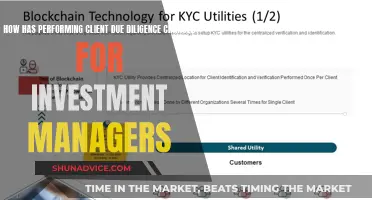
Private Investment in Public Equity, or PIPE, is a financial transaction in which a private investor or accredited investor purchases shares of publicly traded stock at a price below the current market value per share. This usually occurs when equity valuations have fallen and the company is seeking new sources of capital. The purpose of a PIPE is for the issuer of the stock to raise capital for the public company, and it is a faster and more efficient way to raise funds than through a public offering.
| Characteristics | Values |
|---|---|
| Type of investors | Institutional or accredited investors |
| Type of investment | Private investors take a sizable investment in publicly traded corporations |
| Type of shares | Common or preferred stock |
| Share price | Below the current market value |
| Purpose | Raise capital for the public company |
| Advantages | Faster and more efficient than selling shares to the public; fewer regulatory hurdles; quick access to capital at a reasonable transaction cost |
| Disadvantages | Expensive source of capital; dilutes the current stockholders' stake; may need shareholder approval |
What You'll Learn

How does a PIPE deal work?
A PIPE (private investment in public equity) deal involves the selling of publicly traded common shares or preferred stock to private investors. This is done through a private placement, rather than a public offering on a stock exchange.
In a traditional PIPE deal, a company will privately sell equity in publicly traded common or preferred shares at a discounted rate relative to the market price to an accredited investor. In a structured PIPE deal, the issuing company issues convertible debt, which can usually be converted to the issuing company's stock at the purchaser's will.
PIPE deals are often used by companies looking to raise large amounts of capital quickly. The company may create new stock shares or use some from its existing supply, but the equities never go on sale on a stock exchange. Instead, large investors purchase the company's stock in a private placement, and the issuer files a resale registration statement with the SEC.
The issuing company typically obtains its funding within two to three weeks, rather than waiting several months or longer for a secondary stock offering. Registration of the new shares with the SEC usually becomes effective within a month of filing.
PIPE deals are particularly attractive to investors because they can purchase shares at a discount to the public market price. However, they are less popular with shareholders, as the issuance of new stock for these sales dilutes the value of existing shares.
Equity Investment Interviews: Key Questions to Prepare For
You may want to see also

Advantages and disadvantages of PIPE
Private Investment in Public Equity (PIPE) is the buying of shares of publicly traded stock at a price below the current market value per share. This method of investment is used by investment firms, mutual funds, and other large, accredited investors.
PIPEs are advantageous to companies as they are a fast source of capital funds, have less paperwork and filing requirements, and have lower transactional costs. They are also beneficial for small-to-medium-sized public companies that have difficulty accessing traditional forms of equity financing.
However, there are also disadvantages to PIPEs. The discounted share price means less capital for the company and dilution of the current stockholders' stake. Additionally, investors may sell their stock in a short amount of time, driving down the market price. If the market price drops below a certain threshold, the company may have to issue additional stock at a significantly reduced price, further diluting the value of shareholders' investments and leading to an even lower stock price.
Overall, while PIPEs can provide companies with quick access to capital, they also come with risks, including potential dilution of share value and a decrease in stock price.
Foreign Investment in India: Global Money Magnet?
You may want to see also

PIPE vs IPO
A private investment in public equity (PIPE) is a transaction where a company sells shares in exchange for capital from a major investor. The stock is already available on public markets, but private equity investors buy the stock at a discount directly from the issuer. A PIPE is a type of private placement, and the company selling the shares already trades on a public stock exchange.
A PIPE deal is a way to raise money for a company going public. It is a capital raise and has become a common part of the SPAC transaction. In a SPAC merger, the target company and acquirer typically agree to a minimum cash flow, which is usually more than what is held in the SPAC's trust, so the company then seeks a PIPE deal.
PIPE deals are usually only open to institutional investors and accredited investors. They are faster than IPOs and have fewer regulatory hurdles. However, the company must sell its shares at a discount, which dilutes the value of current shareholders' investments.
An initial public offering (IPO) is when a company's securities are sold on a public stock market for the first time. This is different from a PIPE, where the stock is already available on public markets. IPOs also require more regulatory work and take longer to complete.
NRI Investment: India or USA?
You may want to see also

PIPE vs private placement
Private Investment in Public Equity (PIPE) is a method of raising capital where publicly traded companies sell shares of stock at a discount to the current market value per share. This is done through a private investment firm, a mutual fund, or another qualified investor. A traditional PIPE is one in which common or preferred stock is issued at a set price to the investor, while a structured PIPE issues common or preferred shares of convertible debt.
PIPEs are often used by small- to medium-sized public companies that have difficulty accessing traditional forms of equity financing. They are faster and more efficient than secondary offerings as they have fewer regulatory hurdles. However, they can be an expensive source of capital as the issuer must accept a discount on the stocks sold.
In a PIPE transaction, the company's stock is purchased by investors in a private placement. The issuing business typically obtains its funding within two to three weeks, as opposed to several months or longer in a secondary stock offering.
A private placement, on the other hand, is a deal where shares are sold to a small number of pre-selected buyers, rather than on a public stock market. This is common for smaller or privately held companies that do not qualify for public offerings. A PIPE is a type of private placement where the company selling the shares already trades on a public stock exchange.
While a PIPE can be a more straightforward way for an issuer to raise capital compared to a public offering, there are some key differences and considerations. Firstly, the issuer must sell its shares for less than the market price in a PIPE, which results in a diluted share value for current stockholders. Secondly, there may be a potential need for shareholder approval, especially if the PIPE involves a structured deal with reset clauses that expose existing shareholders to greater risk. Finally, PIPE investors are limited to accredited investors, whereas private placements can be offered to a wider range of buyers.
Investing vs. Saving: Brainly's Guide to Financial Strategies
You may want to see also

PIPE and mergers and acquisitions
Private Investment in Public Equity (PIPE) is the buying of shares of publicly traded stock at a price below the current market value per share. This is done by investment firms, mutual funds, and other large, accredited investors. A PIPE can be used to secure funds for working capital, fund day-to-day operations, expansion, or acquisitions.
PIPEs are particularly attractive to investors when control investments are harder to execute. They are also attractive because they allow investors to purchase shares or securities at a discount and acquire a sizable position at a fixed or variable price without pushing the stock price higher through open market purchases.
Many reverse mergers are accompanied by a simultaneous PIPE transaction, typically undertaken by smaller public companies. Shares are sold at a slight discount to the public market price, and the company agrees to use its best efforts to register the resale of those securities for the benefit of the purchaser.
A PIPE can be a faster and more efficient way for a company to raise capital than a traditional IPO or follow-on offering, as it involves less paperwork and fewer regulatory hurdles. However, one of the biggest downsides of a PIPE transaction is that investors can sell their stock quickly, driving down the market price.
A PIPE is generally used as a fundraising round that happens simultaneously with a Special Purpose Acquisition Company (SPAC) merger to provide additional capital to the business. In a SPAC merger, a shell company is created with the sole purpose of acquiring a target company. The SPAC then merges with the target company, making it public.
Mergers and acquisitions (M&A) refer to business transactions in which the ownership of companies or business organizations is transferred or consolidated with another company or business organization. This can occur through direct absorption, a merger, a tender offer, or a hostile takeover. M&A allows enterprises to grow or downsize and change their business nature or competitive position.
Overall, PIPE transactions can be a useful tool for investors to acquire shares at a discount and for companies to raise capital quickly and efficiently. They are often used in conjunction with mergers and acquisitions, particularly reverse mergers, to facilitate the transaction and provide additional capital to the business.
Investing Guide: A Handbook for Indians
You may want to see also
Frequently asked questions
A Private Investment in Public Equity (PIPE) is when private investors buy shares of publicly traded stock at a price below the current market value per share. This is usually done when equity valuations have fallen and the company is looking for new sources of capital.
Companies use PIPE as a means to get additional access to the equity markets. This is a faster way to raise capital than a secondary stock offering, as it has fewer regulatory hurdles and is less time-consuming.
The benefits of PIPE include less stringent regulatory requirements, saving companies time and money, and raising funds more quickly. PIPE can also be particularly advantageous for small-to-medium-sized public companies that may struggle to access more traditional forms of equity financing.
The discounted price of PIPE shares means less capital for the company, and their issuance can dilute the current stockholders' stake. PIPE investors may also sell their stock in a short amount of time, driving down the market price.







